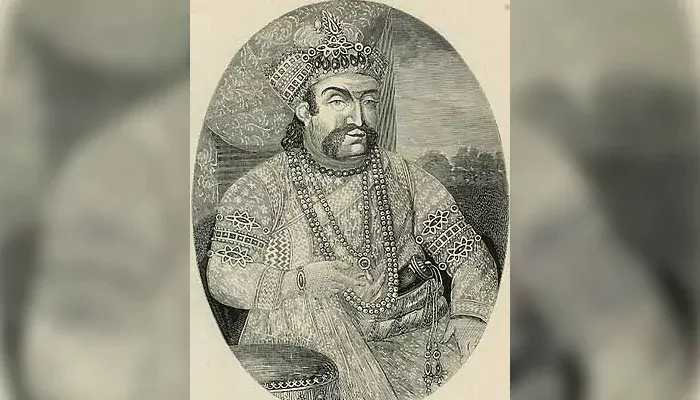
When royal blood met iron bars, ink flowed instead of tears.
When you think of a Nawab, what comes to mind? Silk robes, lavish feasts, loyal courtiers, maybe a grand palace with endless corridors? But this story begins in the opposite setting - cold prison floors, thick stone walls, and an iron lock.
The Nawab in question is Wajid Ali Shah, the last ruler of Awadh, whose reign ended not with a battlefield defeat but with a British annexation in 1856. Stripped of his throne, separated from his beloved Lucknow, and confined in the brick fortress of Calcutta, he could have sunk into despair. But instead, he picked up a pen. And from then on, the ink became his crown.
In prison, most people count days. Wajid Ali Shah counted couplets. He was already known in Lucknow for his deep love for Urdu poetry, thumri, and Kathak, but it was in confinement that his words sharpened into something immortal.
He wrote under the pen name “Akhtar” — meaning “star” — and his verses carried the fragrance of Lucknow’s gardens, the rhythm of its courtyards, and the melancholy of lost sovereignty. Under this name, he wrote poems, prose, and thumris.

His poetry wasn’t just about heartbreak in love — though he did that beautifully — but about heartbreak in life. About betrayal, displacement, and the longing for a home he could no longer see. And here’s the twist — despite being behind bars, his words were never bitter. They were graceful, like a nawab refusing to let chains make him bow.
If you’ve ever been homesick, you’ll understand the essence of Wajid Ali Shah’s prison verses. He missed the sound of the sarangi echoing through his palace halls, the aroma of kebabs drifting in the evening air, and the sight of women in bright chikankari saris during mehfils.
In his poetry, Lucknow lived on. He built a city of words when his real one was taken away. For him, each ghazal was a piece of Lucknow stitched into eternity — a reminder that you can take away a man’s land, but not the land in his heart.
Let’s be clear — Wajid Ali Shah wasn’t a rebel in the battlefield sense. He didn’t ride out with swords and armies against the British. But in his own refined way, he resisted. He refused to let colonial captivity erase his culture.
By writing, composing, and documenting Lucknow’s traditions, he preserved an entire way of life. Imagine, without his words, some of Awadh’s delicate arts, music, and expressions might have vanished into the dust of history.

(Shayari by Wajid Ali Shah, Credit: Explore Indian Poetry)
After his release, Wajid Ali Shah lived in Garden Reach area of Calcutta, far from his beloved Lucknow. But the verses he had written in prison had already made their way into the hearts of poets, singers, and common folk. Even today, some thumris and ghazals trace their roots to his compositions.
In a way, his prison was both punishment and gift — it gave us a treasure of poetry that might never have existed had he remained a king surrounded by luxury.
In today’s world of instant tweets and disappearing stories, the Nawab’s prison poetry is a reminder that art can bloom even in the harshest conditions, that dignity is not a throne but a state of mind.
And perhaps, somewhere, each of us carries our own version of a prison — a difficult job, a heartbreak, a challenge — and maybe, just maybe, we can all take a page out of Wajid Ali Shah’s book: turn pain into poetry, and confinement into creation.

Wajid Ali Shah was the person who introduced Aloo (potato) in Kolkata’s biriyani.
Legendary filmmaker Satyajit Ray made a film on his life named Shatranj Ke Khilari (1977), starring Amjad Khan portraying the role of Wajid Ali Shah. The film also won prestigious National award in the category of Best Hindi Feature Film. To know more about his life, go through the book (Shatranj ke Khiladi) written by Premchand.
Wajid Ali Shah may have lost his palace, but his poetry built one no power could seize.